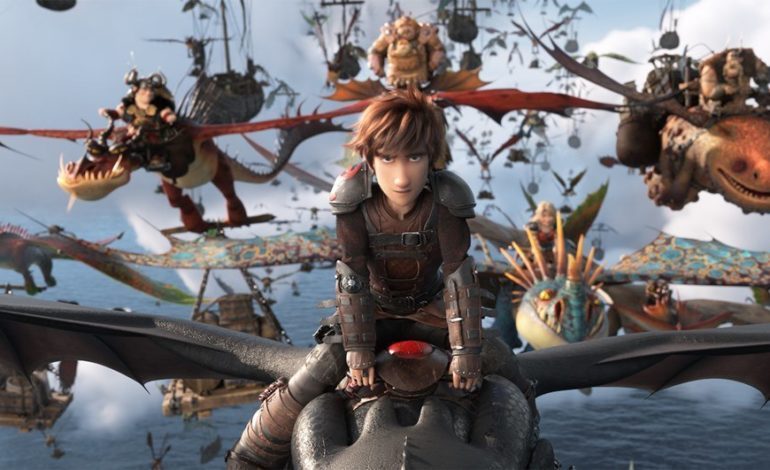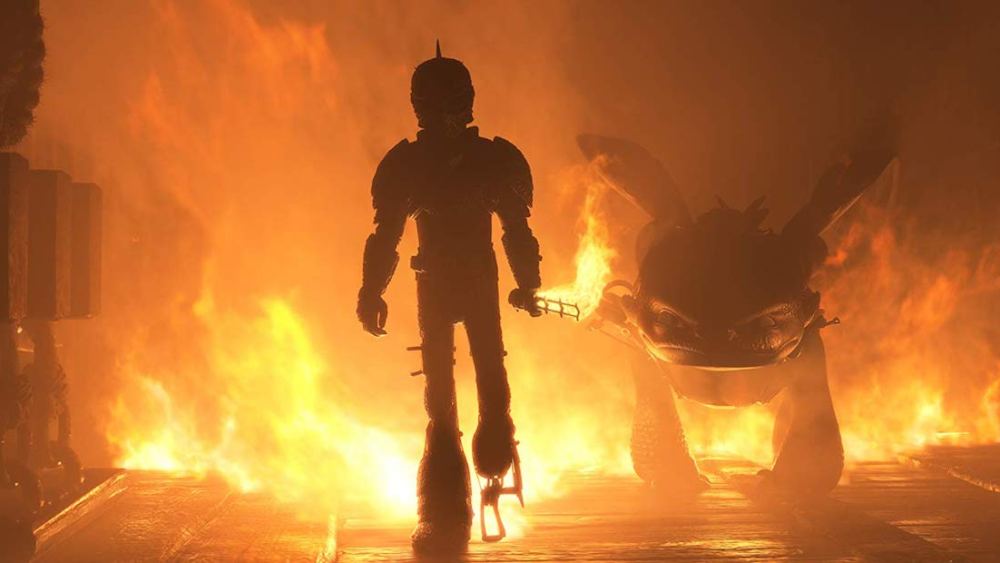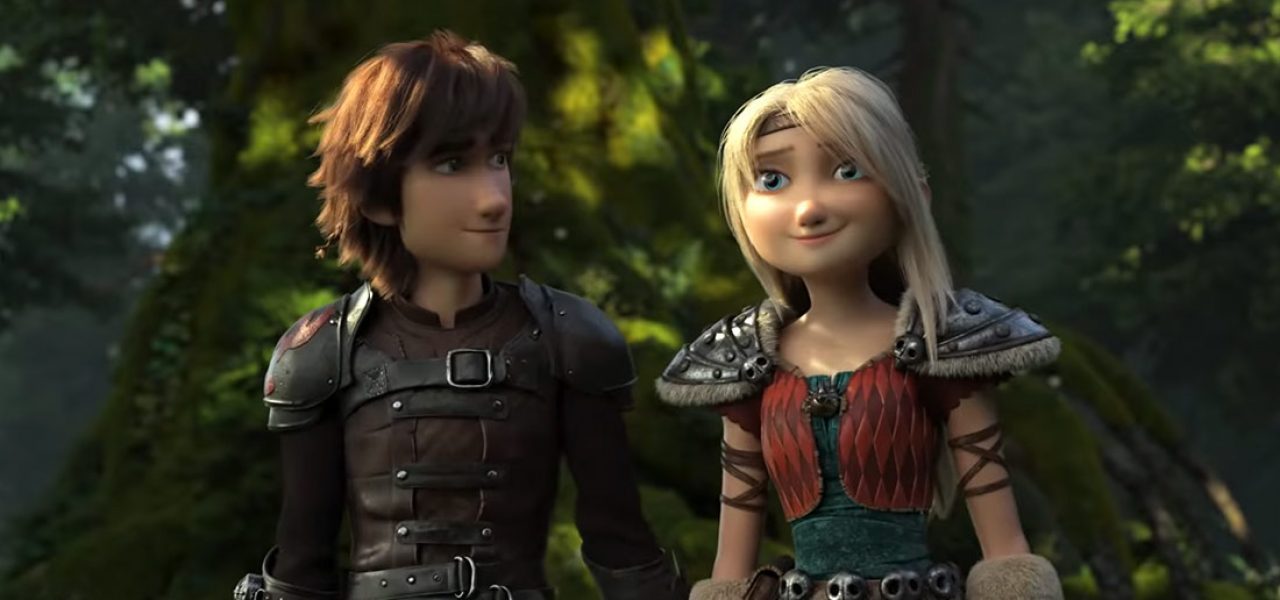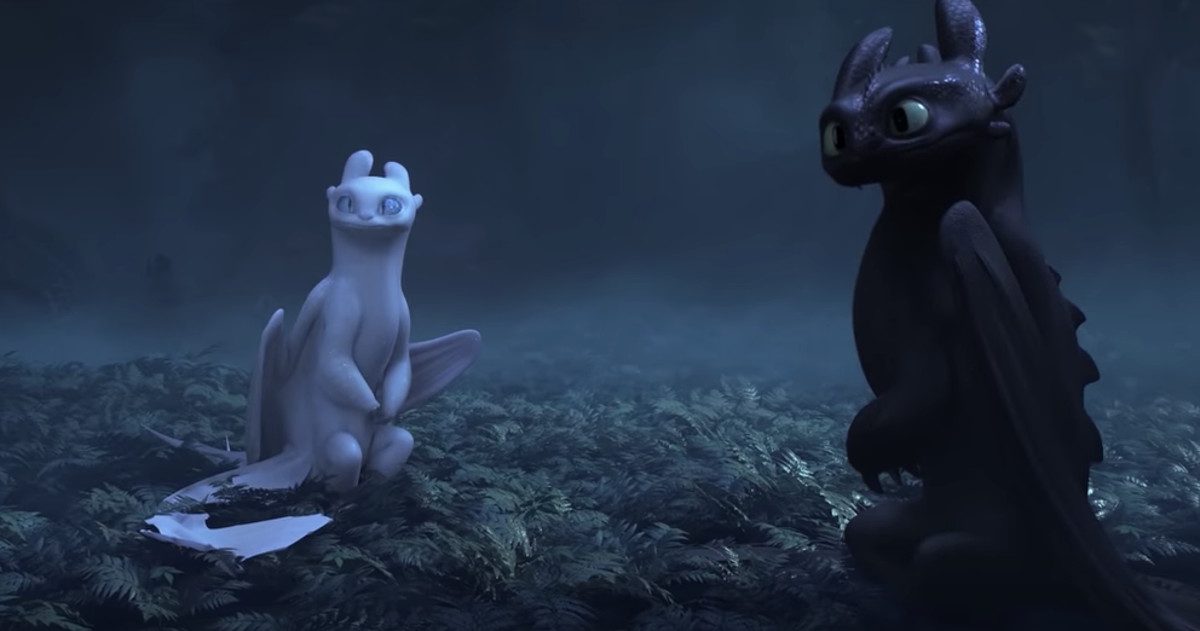

The How to Train Your Dragon films have always impressed me. In addition to taking place in an exciting fantasy world setting, this is an animated family franchise willing to mature its characters alongside the viewers. We’ve seen protagonist Hiccup (Jay Baruchel), and his Night Fury Toothless grow up together since 2010 and, in that time, they’ve done a lot beyond ending the long-waged war between vikings and dragons.
Just consider what happened in the past two films alone. Hiccup gained Toothless’ trust by building new appendages to help him fly again, only to lose his leg and have it replaced with similar prosthetics. He reunited with his presumed-dead mother after so many years, only to lose his father to a madman’s quest for power. And he saved the entire village of Berk, twice. That is some deep character development and, to its credit, How to Train Your Dragon: The Hidden World opts to wrap up the franchise while its goodwill remains strong, rather than run their concept into the ground and cruelly beat the dead horse.


This is not, by any means, a perfect film. But as a conclusion to Hiccup’s nine-year journey, it feels just satisfying enough. In the year since How to Train Your Dragon 2, Hiccup became Berk’s leader and rebuilt the city into an ideal human-dragon coexistent community. Accompanied by his warrior girlfriend, Astrid (America Ferrera), and their friends, Hiccup launches raids on unsuspecting Viking ships, frees their dragons, and brings them to Berk’s newly constructed dragon-friendly environments. With so many dragons in one condensed location, the village becomes a target for local warlords hoping to fulfill antagonist Drago Bludvist’s intent of forming a dragon army. But, so long as Toothless- the current “alpha” amongst the dragon hierarchy- remains Berk’s defender, that plan is doomed to fail.
Enter new antagonist, Grimmel the Grisly (F. Murray Abraham), a renowned dragon hunter who infamously killed every Night Fury besides Toothless. Not the most drastic alteration of villain archetypes, but I give Abraham credit for playing up Grimmel’s predatory giddiness and love of the hunt so that his character’s two-dimensional villainy feels fun. Releasing a female “Light Fury” dragon into the wilderness, Grimmel intends to drive a wedge between Hiccup and Toothless, making it easier to capture him and seize control of the remaining dragons. But Hiccup, recognizing this threat, concludes that Berk is no longer safe for either humans or dragons. His new plan is to embark on a mass exodus in search of the legendary “Hidden World,” a dragon paradise that once enthralled his father Stoick (Gerald Butler) and could potentially serve as a new home. That is, if it exists at all.


How to Train Your Dragon: The Hidden World is a solid film whose story, as much as I hate to admit it, lacks ambition. It’s a simple tale of escaping adversaries and creating a new home before the dragon-hunters and warlords can do further harm. Apart from Grimmel’s moments of sinister glee while dragon hunting, neither he nor the other Viking antagonists are written with depth in mind. They mainly exist to put our heroes on the run and later serve as a “big bad” for the climax. The real “enemy”, in a non-tangible sense, is the growing rift between Hiccup and Toothless. Not an aversive rift by any means, but one that suggests the two are forging paths independently of each other’s company.
For so long, Hiccup’s self-confidence was defined by his partnership with Toothless, both as outsiders and as fighters. But now the two have grown up and no longer need each other the way they once did. Hiccup, still plagued by insecurities, contemplates how best to adapt to his leadership position and whether he and Astrid are even ready to consider tying the knot. Meanwhile Toothless, the vicious, reptilian puppy with wings that he is, discovers companionship with a dragon much like himself, opening a future neither he nor Hiccup saw coming. One of the film’s funniest scenes involves Toothless awkwardly trying to impress the Light Fury with various dance/mating moves as Hiccup encourages him from the sidelines. It’s a cute touch of physical comedy that subtly indicates, despite the early signs that they’re drifting apart, the strength of Hiccup and Toothless’ bond.


As for Astrid and the supporting cast, everyone still feels quirky and lovable, but sorely underused. The Hidden World does its best to give each character some screen time, including Hiccup’s “Dragon Rider” companions, his dragon-taming mother Valka (Cate Blanchett), and blacksmith ally Gobber (Craig Ferguson), but not necessarily of the character-building type. They mostly stop by to give Hiccup advice or engage in some comedic scenario that, admittedly, made me laugh. These are fun Viking characters and their presence never angered me, but, out of the entire bunch, only Astrid is used to convey the film’s broader themes of adult responsibility.
Still, just like Kung-Fu Panda, The Hidden World reminds me how gorgeous DreamWorks can make their film worlds look. Painstaking effort was put into this film’s animation quality, designing various dragon models and environments that, while hardly photorealistic, remain breathtaking. The candy-colored palettes of Berk’s dragon lairs and wooden huts make for a nice contrast against the natural ocean and cloud imagery during dragon flying segments, especially during one of Toothless’ “dates” with the Light Fury. The most breathtaking visuals are, by far, found in the Hidden World, where luminescent interiors create an exotic landscape unlike anything in the realm of humans. It helps that the score accompanying these visuals feels equally grandiose and atmospheric.
Verdict: 4 out of 5 Stars
How to Train Your Dragon: The Hidden World wants to be Toy Story 3— the perfect (at least until recently) conclusion to a beloved animated trilogy. And while the film’s most basic plot points suggest that director Dean DeBlois played things safe, it still works as an emotional conclusion to nearly a decade’s worth of storytelling. I’d even say the final scenes award this film its coveted “perfect” label, tying the themes of leadership, growth, and change into an ending that completes Hiccup and Toothless’ journey. Any threequel entry that can evoke such a reaction from me is worthy of some respect.
